ReservationSearch and reserve rooms
Click here to confirm, change or cancel your reservation
提携法人専用予約
2024.03.26
The challenge of Tsuboya ware pottery manufacturer Ikutouen to create the scenery of Okinawa.
NEIGHBORS
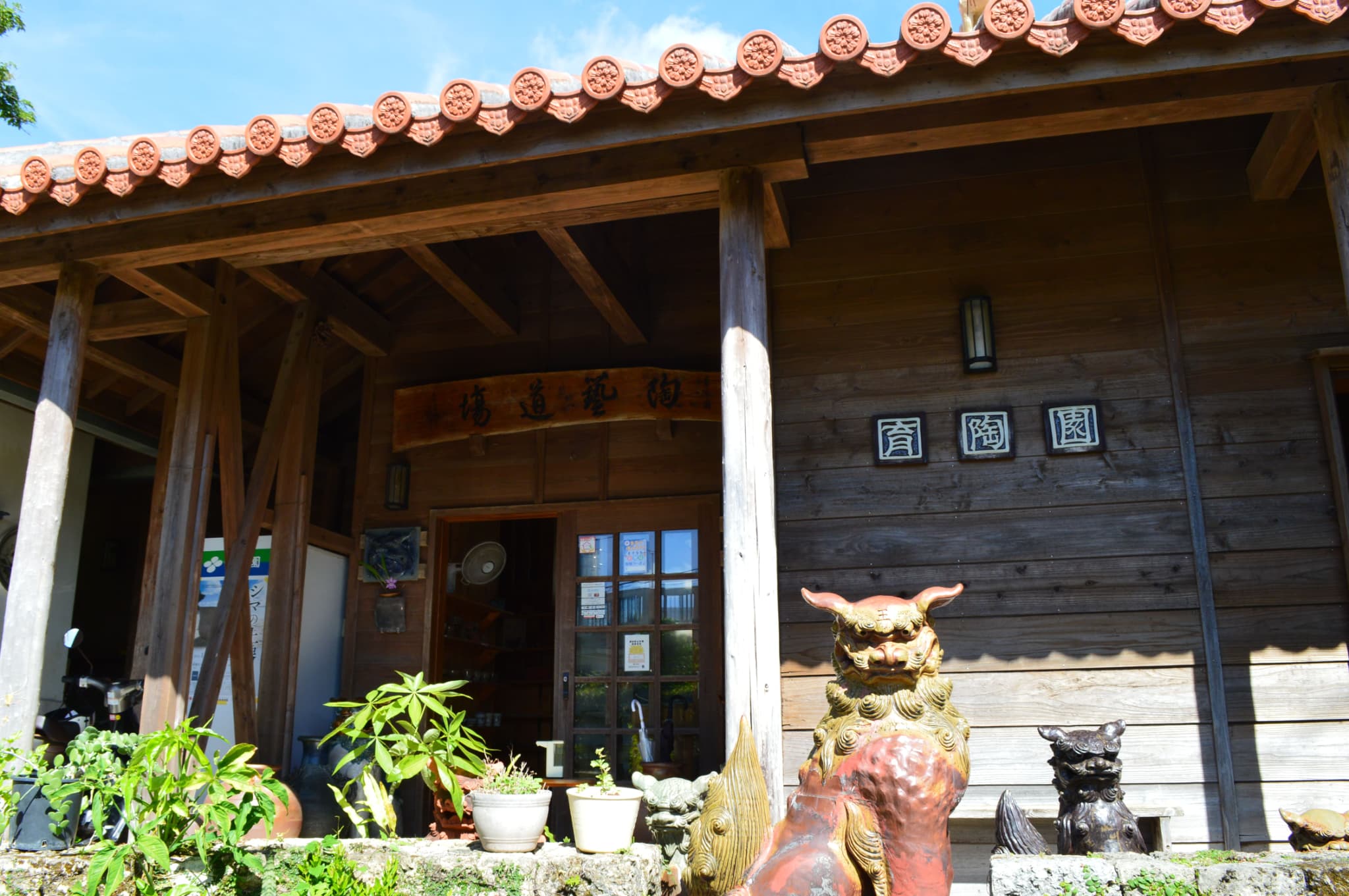
Located in the center of Naha city, 90% of the city was destroyed in the last war, and Tsuboya district, close to Kokusai Street, was one of the 10 % that escaped the fires of war. Since 1682, when the Ryukyu Kingdom government consolidated three pottery factories (Tsuboya) into one location to promote the pottery industry, the area has been known nationwide as a major pottery production area to this day. In addition, many things remain, including the Arakaki family house, a nationally designated important cultural property, as well as climbing kilns, stone walls, and wells, conveying the scenery of the past to the present day.

Yachimun Street is a 400m street paved with Ryukyu limestone that stretches through the center of the Tsuboya district."Yachimun"means pottery in the Okinawan language, and the street is lined with about 40 shops, including direct sales stores of pottery makers who still make pottery here, and gallery shops.
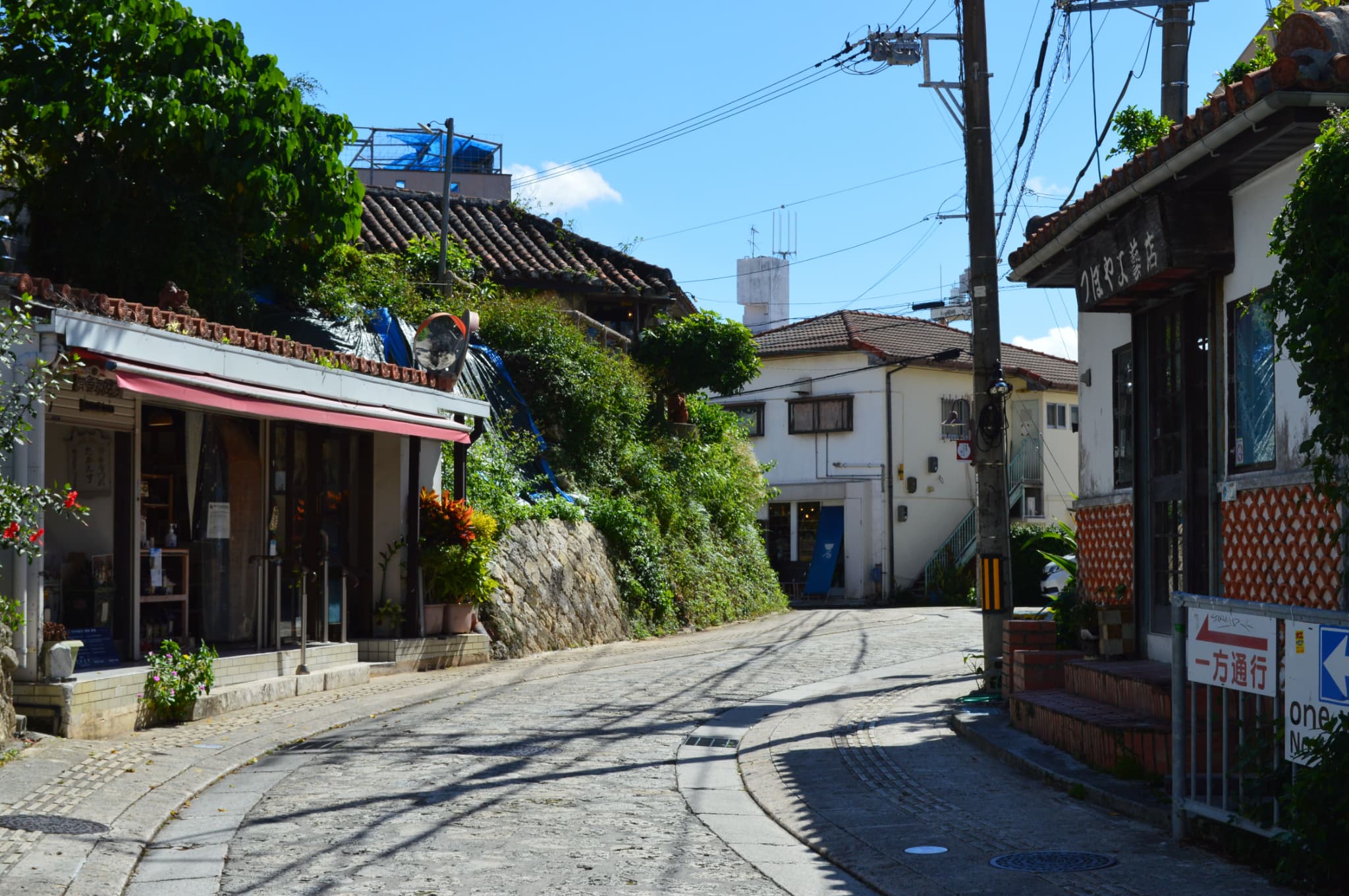
Yachimun Street, paved with Ryukyu limestone
We visited Ikutoen, a Tsuboya ware pottery manufacturer that has had its roots in this area since the days of the Ryukyu Dynasty and was founded over 60 years ago.
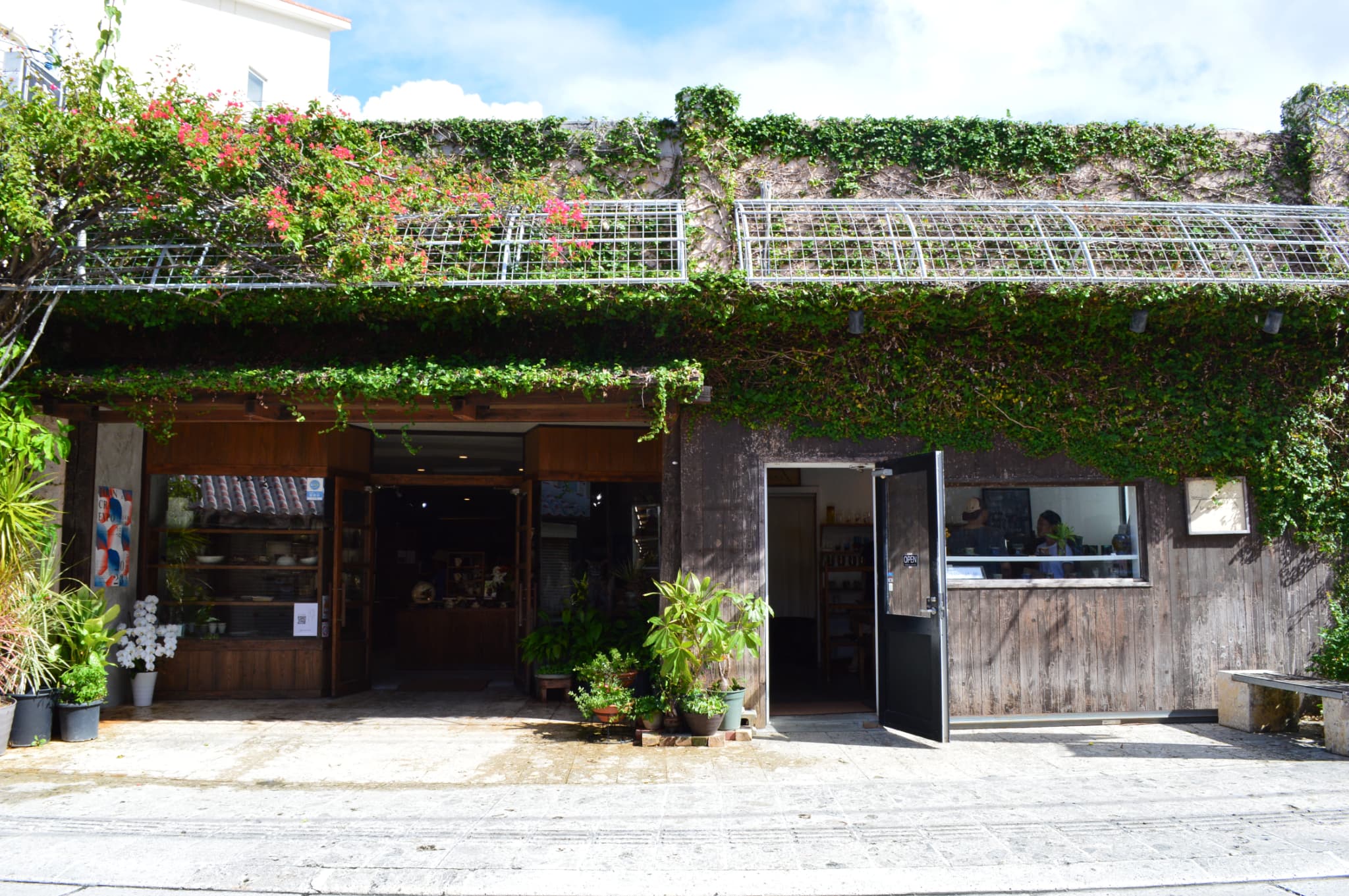
Tsuboya ware pottery manufacturer "Ikutoen" main store (left) and new brand shop Kamany (right)
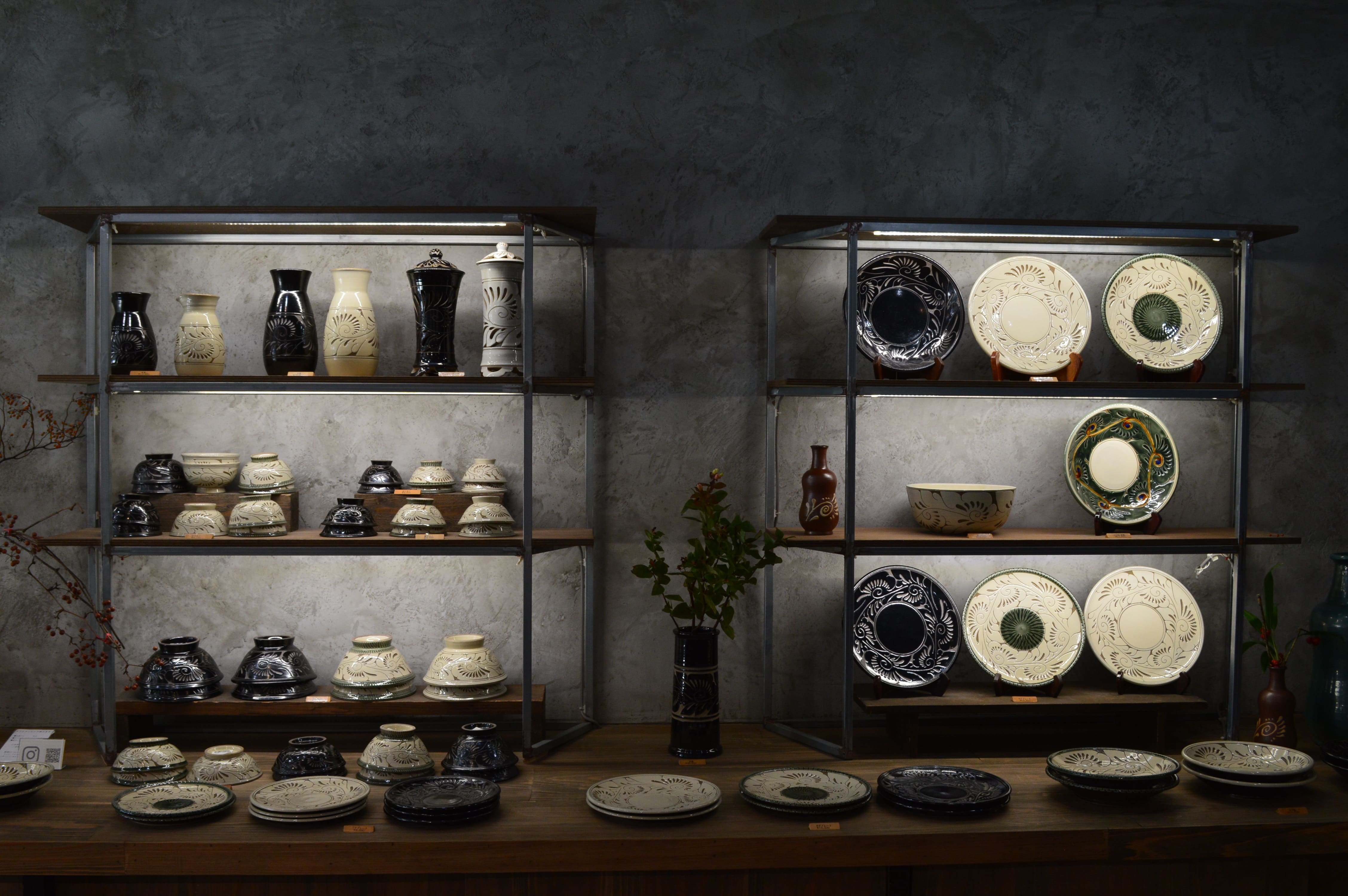
Representative Takaesu Wakana explained the reason why Tsuboya developed as a pottery production area.
"Because fire is used, the area was not too far from Shuri Castle, the slightly elevated terrain was suitable for a climbing kiln, there was plenty of soil and water, and it was close to a port for transporting firewood from the north. All these favorable conditions were met."
The Takaesu family has been rooted in this area since before 1682, and for generations they have been making "ara-yaki" (unglazed earthenware). "ara-yaki" is unglazed pottery, and was mainly used as containers for storing water bottles and awamori. Eventually, with the spread of running water, "ara-yaki" fell into rapid decline.
As it was not possible to make a living from Yachimun, the fourth-generation owner spent his childhood as indentured servants in fishing villages, and even traveled to Osaka and Manchuria in search of new opportunities. After the war, the fifth-generation owner, Takaesu Ikuo, returned from Manchuria, established Takaesu Pottery and began making Joyachi. Joyachi pottery is made from different clay than Arayaki pottery, is glazed, and is primarily used for tableware such as teacups and teacups. In 1988, he opened a shop on Yachimun Street and named it Ikutouen.
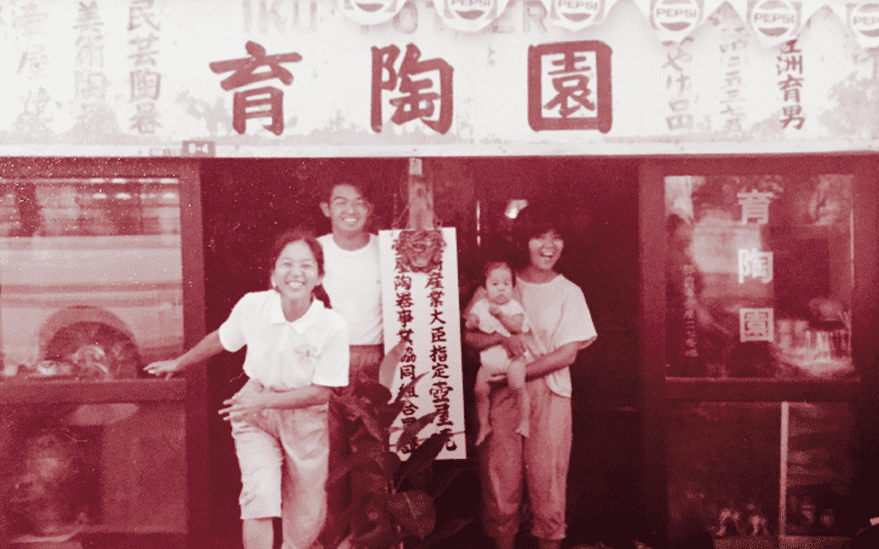 "Ikutouen" was founded with the hope that "people and pottery can grow and develop here."
"Ikutouen" was founded with the hope that "people and pottery can grow and develop here."
"Line engraving" is a distinctive feature of Tsuboya ware
Tsuboya ware is pottery made using Okinawa's traditional red clay, glazes, and techniques. The clay's properties are not suitable for thin construction, and the surface is coated, so the pottery is often thick. Ikutoen's specialty, "line carving," creates patterns by peeling off the surface that has been decorated or coated with a colored glaze. Carving without a preliminary sketch is the basis, and it takes at least 8 to 10 years to master this technique.
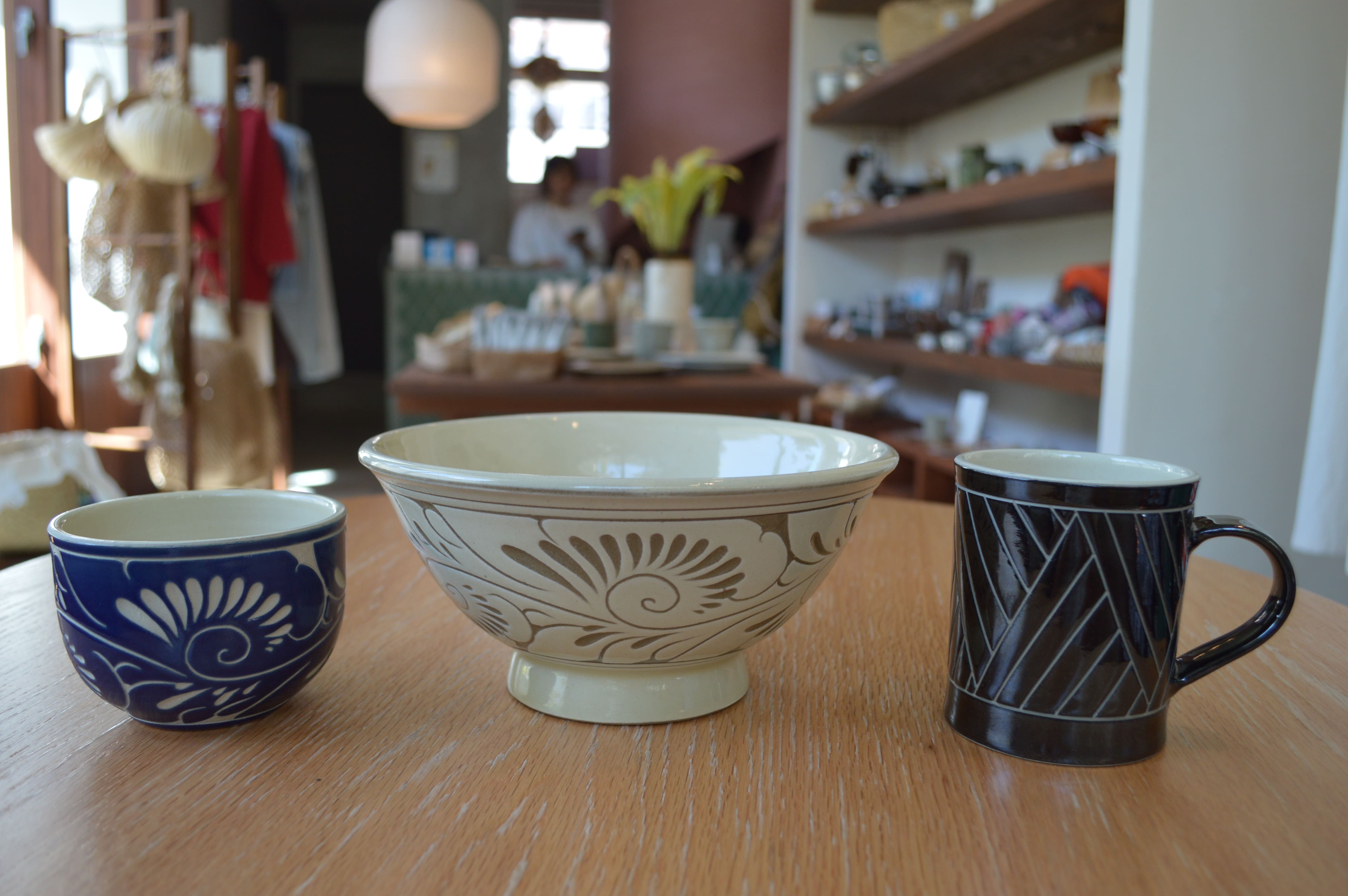
"Line engraving" is done by carving the surface of the finished product without a sketch.
In the Tsuboya area, housing was concentrated during postwar reconstruction, and the smoke from the kilns became a pollution problem, leading to a ban on climbing kilns in 1975. These were replaced by gas kilns. Climbing kilns are characterized by the fact that changes occur inside the kiln, and these unexpected changes create a unique texture, but gas kilns, which have a stable fire circulation that prevents unexpected changes in the glaze and allows the lines to be clearly drawn, are ideal for this type of "line engraving."

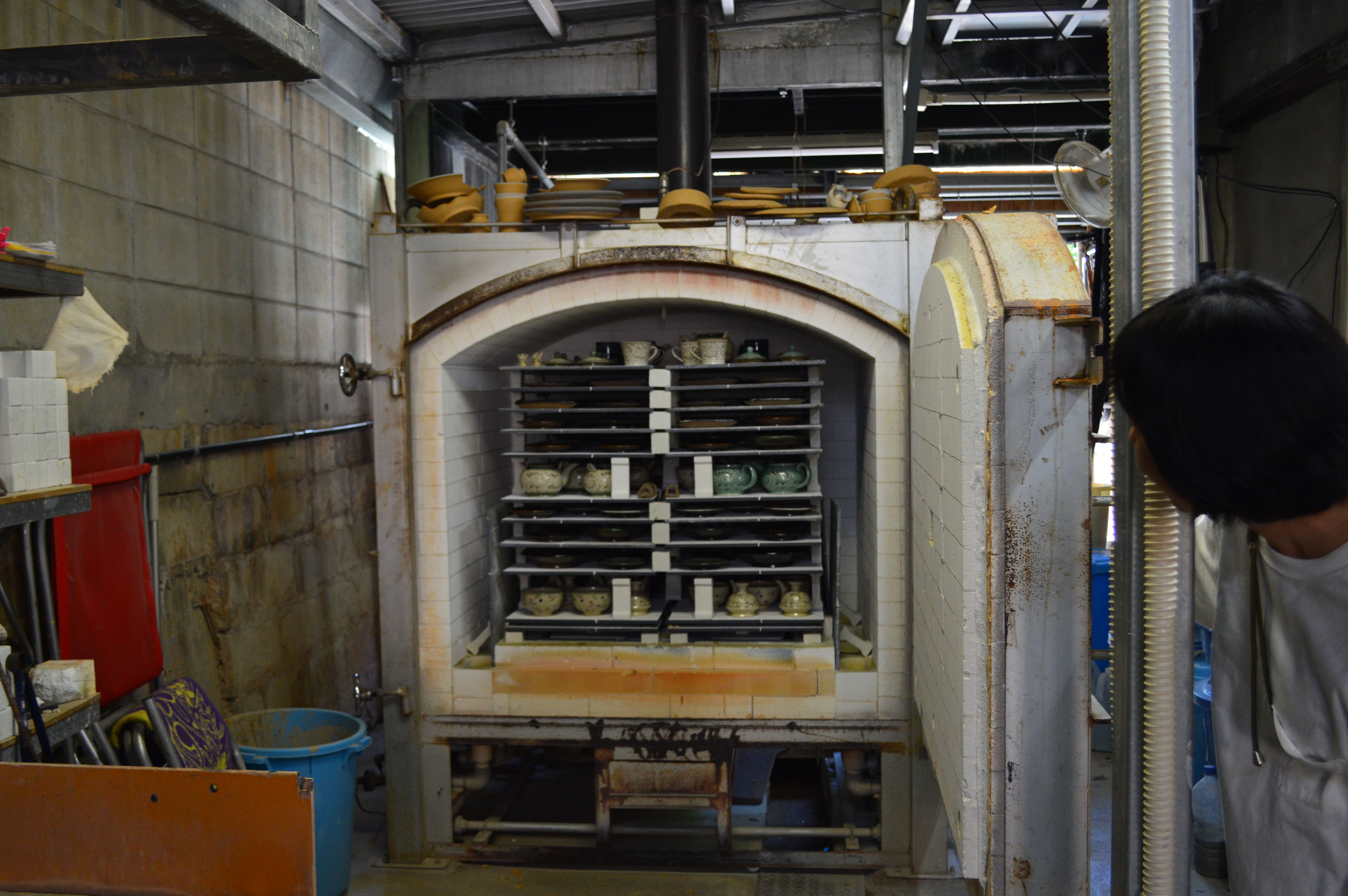 A pottery workshop where you can experience making pottery (top) and the studio's gas kiln (bottom)
A pottery workshop where you can experience making pottery (top) and the studio's gas kiln (bottom)
From "individuals" to "teams"
In 2006, Ikutouen became a company called Ikutouen Ltd.
"The most important thing is the desire to continue. If we rely on individuals, there is a risk that it will be cut short. When we thought about how we could continue, we realized that it might not be about 'blood'. As long as there is someone who understands our sensibilities best, it doesn't have to be a family member. Also, by making it a corporation, our craftsmen can work with peace of mind."
said Wakana.
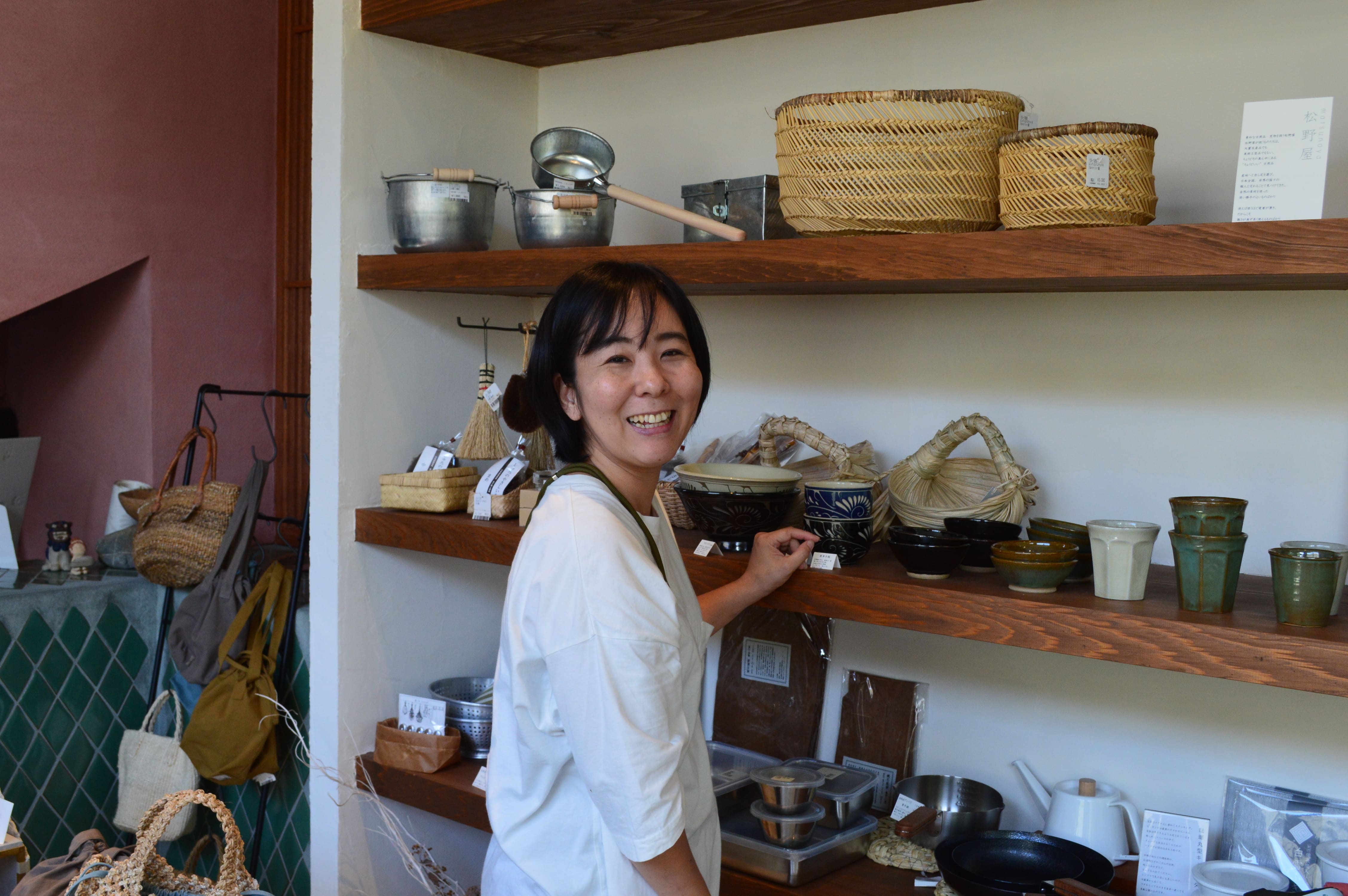
Wakana Takaesu, CEO of Ikutouen
Was there any opposition from your predecessor?
"There was no opposition from my father. There was no opposition to me choosing the better option for the sake of continuity. The important thing is continuity."
I felt the strong passion of Takaesu Wakana, the company's representative, as she repeatedly used the word "continuity."
"Creating" the scenery of Okinawa
"Our company's vision is to 'create the scenery of Okinawa.' And the most important premise is that the artisans will continue to make Yachimun in Tsuboya, a place that has existed for hundreds of years. To achieve this, we want to develop our business in a way that makes the most of the remaining stone walls, old trees, and private homes. If we do nothing, these things will disappear."
Currently, Ikutouen has seven locations around Yachimun Street, and is proposing new brands such as Kamany, which is based on the concept of "savoring time," Guma Guwa, which offers light tableware for everyday use, Etha, a space for new experiments, and Nan*ne, which offers comfortable living.
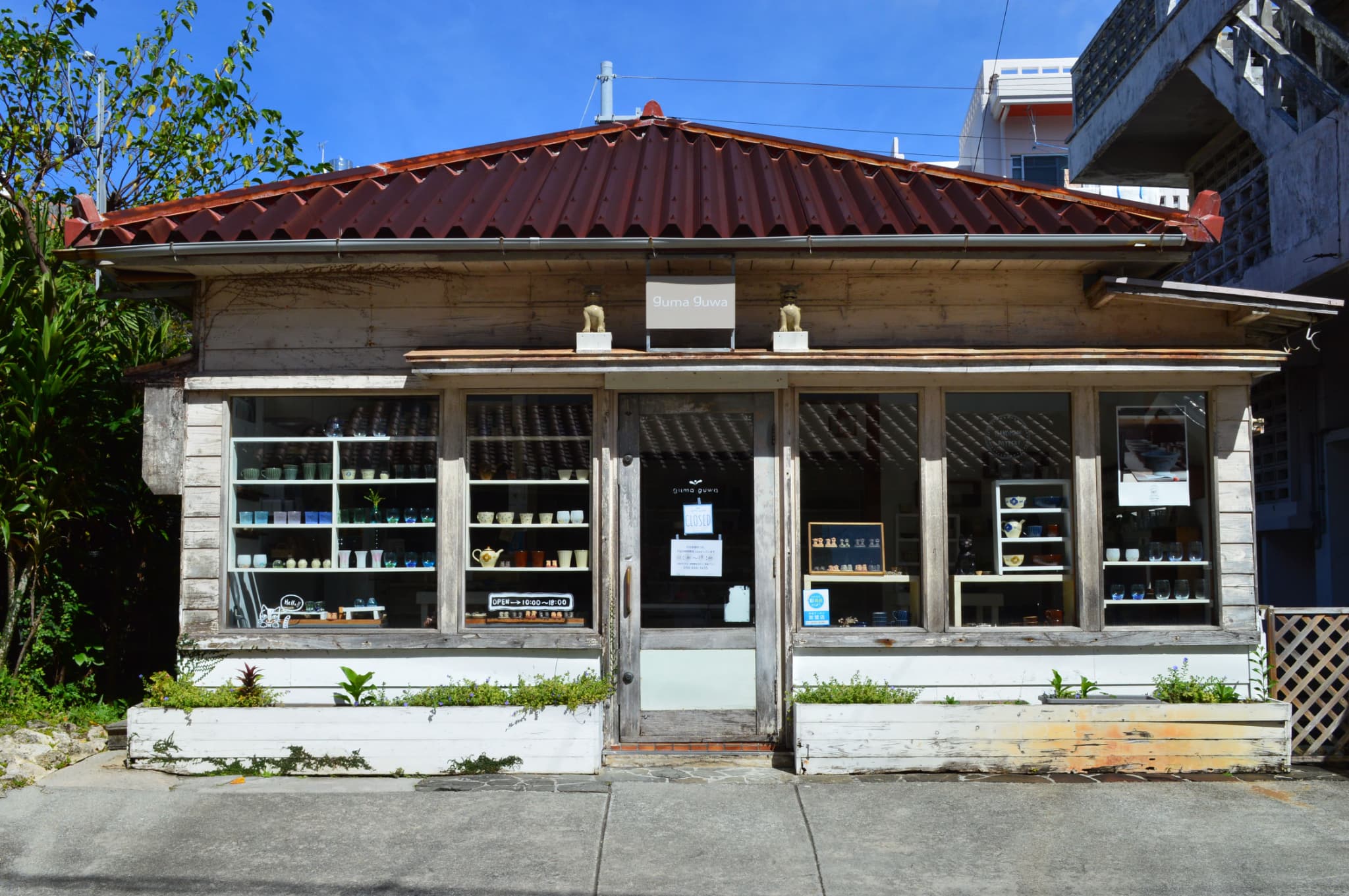
Guma Guwa offers simple tableware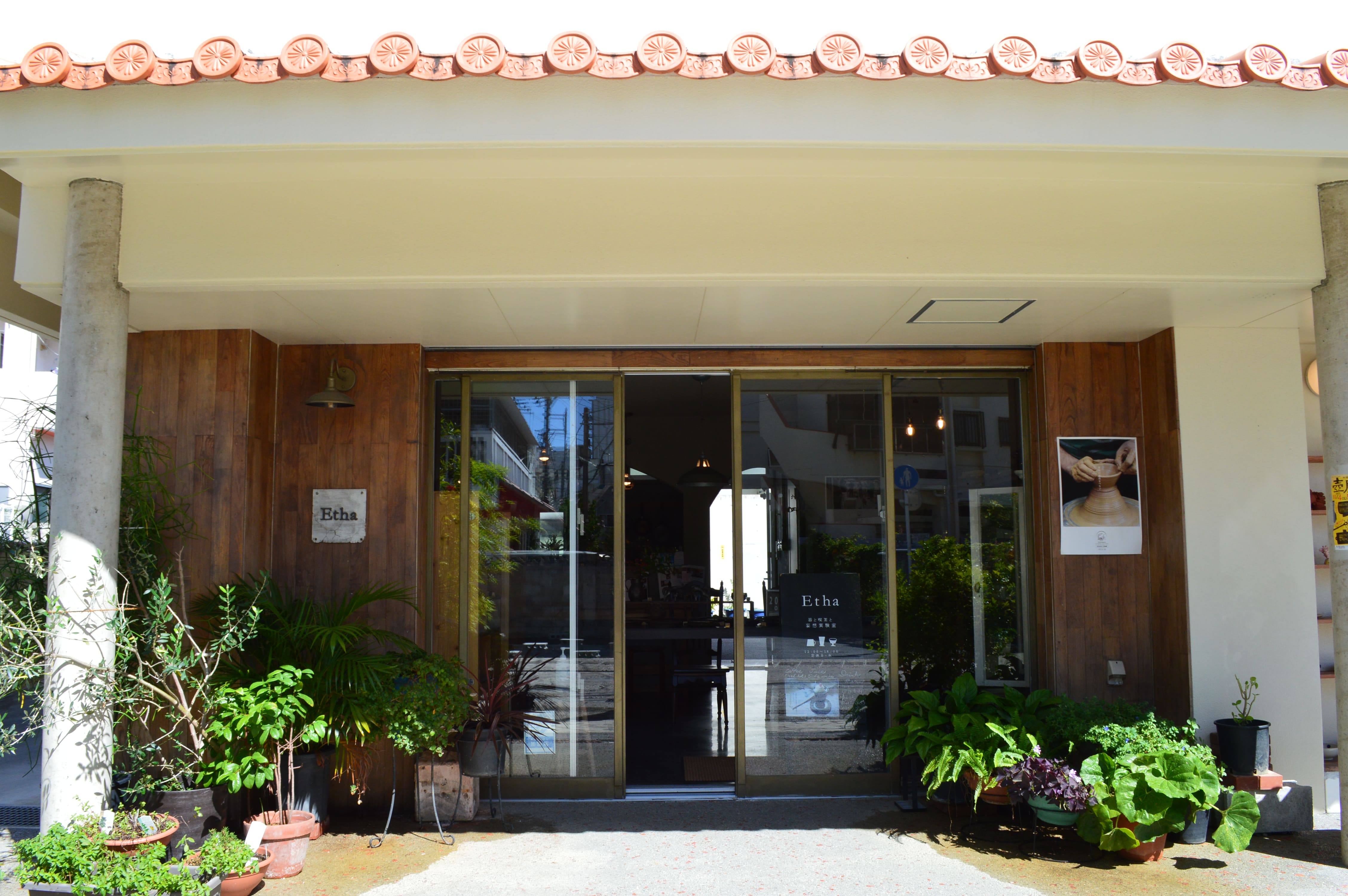
Etha: A new experimental space
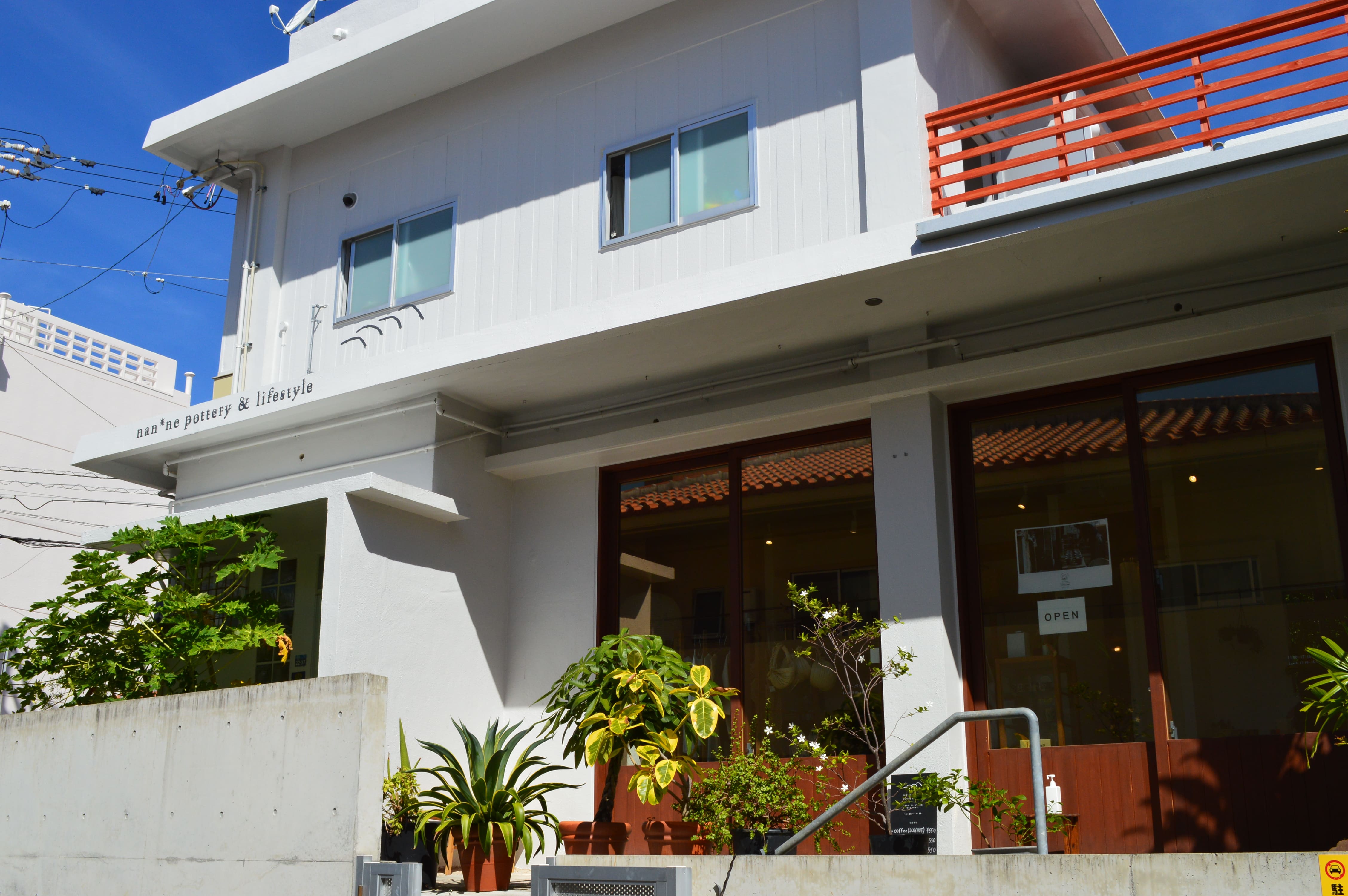
Nan*ne, which also has a cafe space
"It would be more accurate to say that we are creating rather than protecting. If the culture of a place remains old,There is no need to say that the fact that we put our hands into something is connected to "creating" something in many ways.I will.
Wakana says, "I want people and pottery to grow and develop here."It is filled with the wish for a "garden."
The Takaesu family has been making pottery in Tsuboya for generations. Ikutouen has undergone various changes in order to continue, and now, with Takaesu Shohei, the seventh generation head potter, young female proprietress Tomomi, representative Wakana, and next-generation leader Hikaru as its team of about 30 people, they are working to create a new Okinawan landscape.
有限会社育陶園
電話:098-866-1635
住所:〒902-0065 沖縄県那覇市壺屋1-22-33
アクセス:ゆいれーる牧志駅より徒歩11分
HP:https://www.ikutouen.com/
SNS:https://www.instagram.com/ikutouen/
*営業時間や定休日についての詳細は上記のリンク先にてご確認ください。



